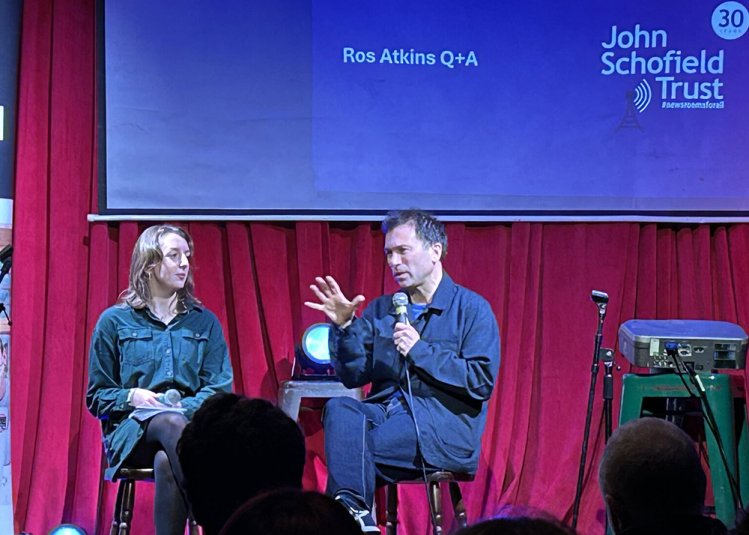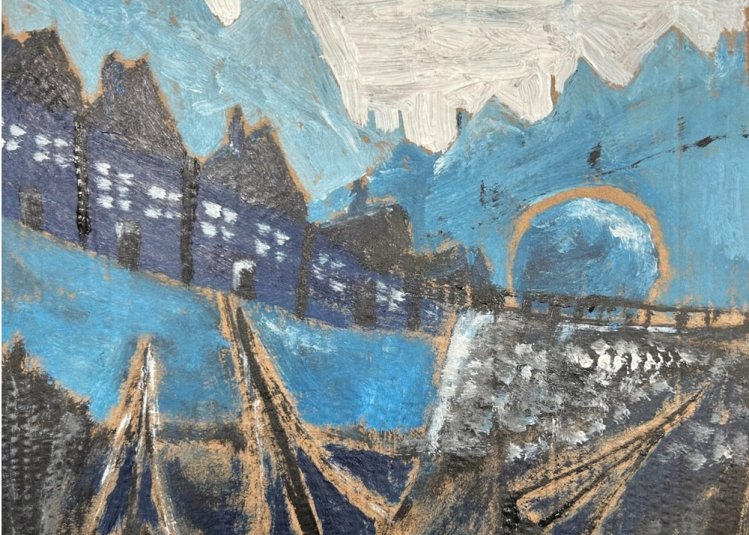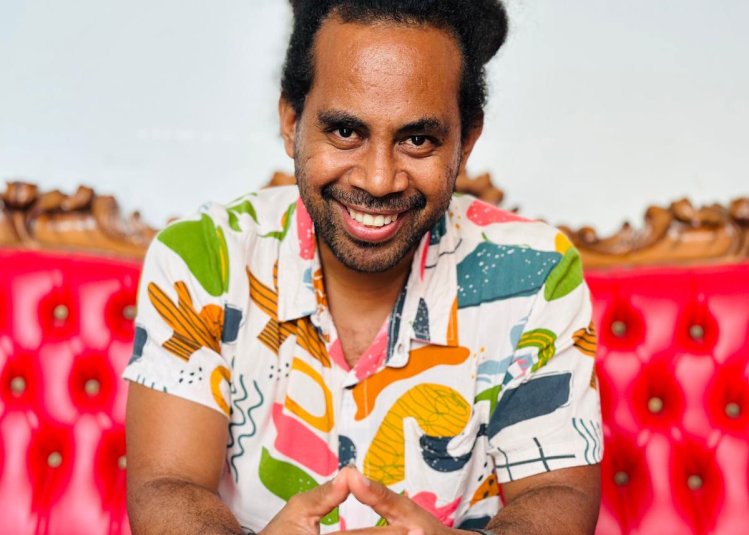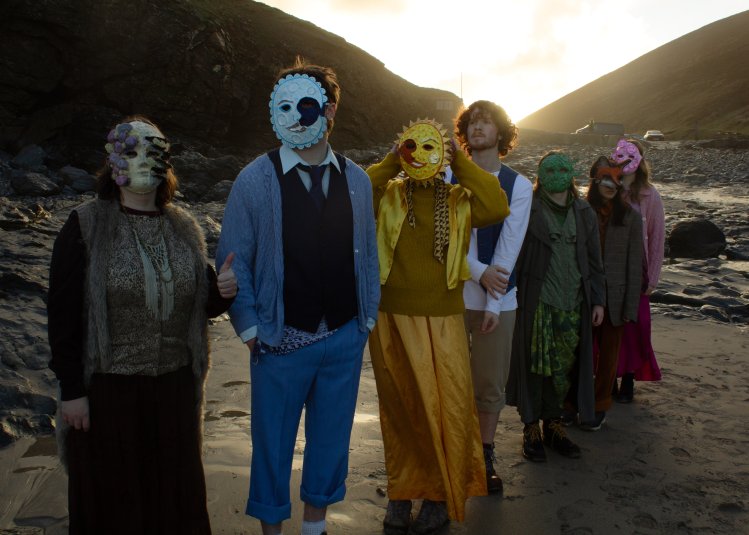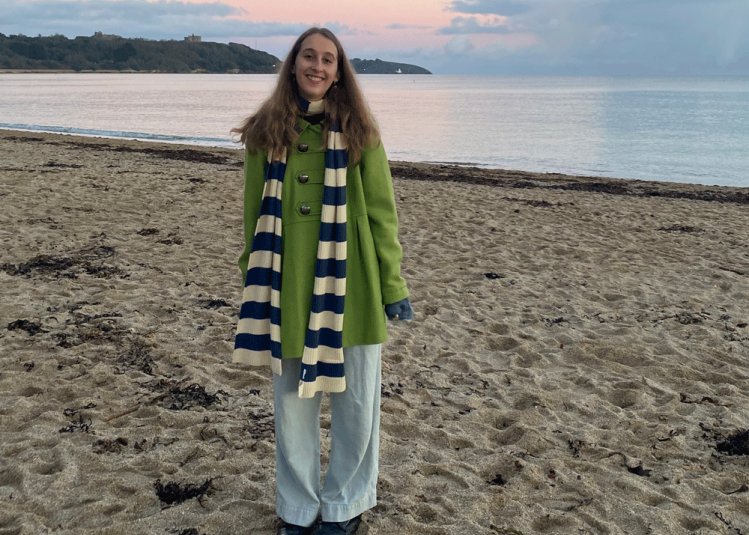Robotics student creates a hand exoskeleton to help arthritis patients
04 June 2025
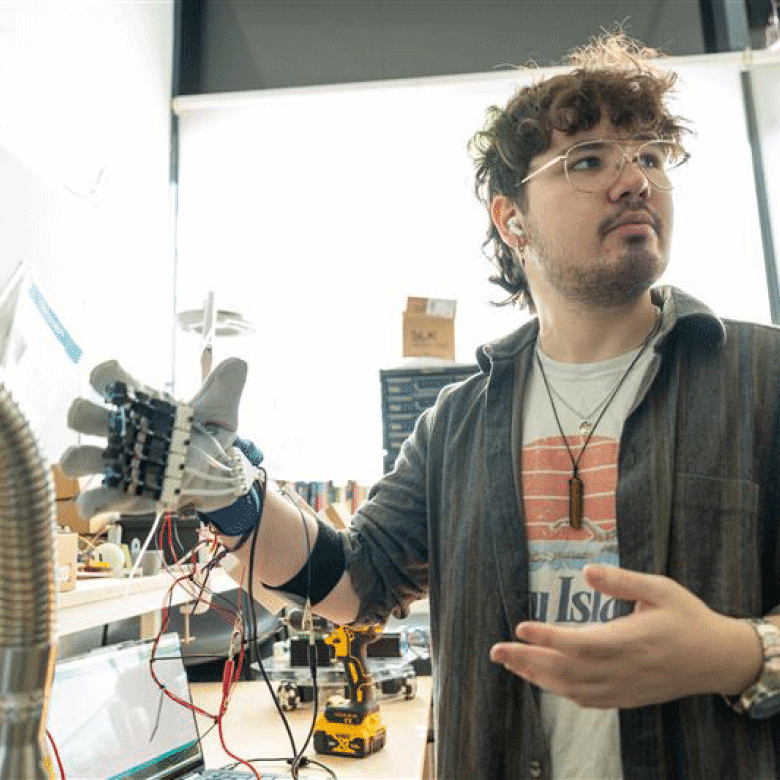
Josh Beckett, a third-year Robotics BSc(Hons) student, has created a hand exoskeleton that allows those with arthritis to perform daily tasks without additional pain, helping to reduce the limitations caused by the long-term condition.
Acting as a glove that allows the user to hold onto and open objects, the piece aims to alleviate two of the biggest challenges faced by people with arthritis: a loss of grip strength and pain whilst flexing fingers.
We chatted with Josh to learn more about how he went from noticing a gap in robotic aids for arthritis to creating a mechanism that can assist those who need it to perform everyday tasks with ease.
Can you tell us more about your project?
As part of my course we were all tasked to investigate problem areas that could use robots to help improve human experiences. I was drawn to arthritis because my grandad suffers with it; he was diagnosed relatively recently, and I have since seen the deterioration of the movement of his finger joints when trying to do everyday tasks.
I was interested in what robotics is doing to help people with arthritis, and I found a sever lack in robotic systems specifically for this condition. There are exoskeletons for spinal cord injuries and paralysis, but with arthritis there wasn’t much around. That’s when I started to think that maybe I could provide something that would help and that’s where the underhand exoskeleton has come in. It’s a robot that sits underneath the hand when one wears a glove; it doesn’t run any force through the joints, so people with arthritis can do basic grasping and everyday tasks without any additional pain.
How have you found the Robotics course?
The course feels very special; I love that it’s so practical. With every project you do, you get to produce something – whether it’s a paper, a robot, or an algorithm – which I really enjoy. With engineering courses, you’re often theorising over putting work into practice, or you’re studying for an exam. I much prefer how it is at Falmouth. My lecturers, Matt Watkins and Benjamin Green, are always around too. Anytime you need to ask questions, they’re there, and I’ve found that so helpful during my time here.
What are your next steps?
This month, just before I graduate, I am working on a micro-internship with Falmouth’s Robotics Lab, led by Matt Watkins and fellow Senior Lecturer Daniel Zhang. We’re working on a project to create an agricultural robot that uses AI to follow animal furrows and to help us understand how we can navigate around them.
Following this, I’m going on to do a master’s in Bio Robotics, and beyond that I would love to pursue a PhD.
